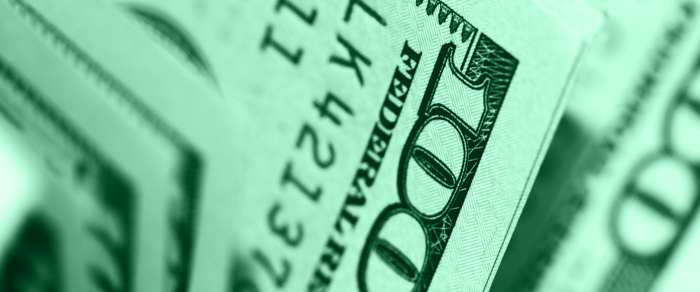How to Save Money During an Economic Recession
Recessions are marked declines in economic growth that can persist for several months or years. When a country’s economy faces declining gross domestic product (GDP), decreasing employment, lower retail sales, and contraction of income and manufacturing metrics over an extended period, experts proclaim an economic downturn, commonly known as a recession. These signs are inevitable components of the economic cycle or the predictable rhythm of expansion and recession in a country’s economy. As of 2022, two years after the pandemic and global geopolitical transformation, we are witnessing another recession cycle.
In this article, we will discuss in more detail what recession is, what it causes, and how it can affect you. Then, we will share some advice on saving money during a recession and show the best stablecoins to help you save money.
What Is An Economic Recession?
According to economists at the National Bureau of Economic Research (NBER), a recession is when the economy contracts from the height of the growth that came before it to its lowest point. When determining the beginning and the end of a U.S. recession, the NBER considers various vital data, including nonfarm payrolls, industrial output, and retail sales. For instance, COVID-19 pandemic-related economic slowdown was so severe and pervasive that the NBER had to classify it as a recession.
Ever since the industrial revolution, many nations have seen economic growth, with recession occurring along the way. Recessions are the relatively brief corrective period of the economic cycle; they are closely related to the inefficiencies in the economy spurred on by the boom that came before them, paving the way for a new rise.
Comparable to economic growth, bear markets, which often precede recessions, can reduce spending due to a rise in asset prices and a rise in net worth. Small firms would struggle to expand if lenders stopped lending, and some might even go bankrupt. After the Great Depression, countries around the world have used countercyclical fiscal and monetary measures to ensure that recurring recessions do not exacerbate or harm long-term economic prospects.
Some of these stabilizers act automatically, such as increased unemployment insurance spending, partially compensating for lost wages for laid-off employees. Others, such as interest rate reductions intended to support investment and employment, call for a central bank’s approval, such as the Federal Reserve in the United States.
Moreover, even if consumer spending and employment remain high, investors may still think a recession will happen, as a stock market decline often signals an economic downturn.
What Causes Recessions?
There are several ways in which a recession may occur, including an unexpected economic downturn or the effects of excessive inflation. The main causes of a recession are:
Economic shock: An economic crash is an unexpected situation that causes significant financial harm. There were several cases in our modern history. For example, in the 1970s, OPEC stopped supplying oil to the U.S., sparking a recession. Another example of a rapid economic shock is the coronavirus outbreak that crippled all economies.
Asset bubbles: Negative financial effects will arrive sooner or later when investments are completed due to emotions or massive “hype.” The stock market, cryptocurrency market, and real estate have created several bubbles already, which were inflated by irrational enthusiasm. When they burst, panic selling may cause a market collapse and, eventually, recession.
High inflation: Inflation is described as a continuous increase in costs. By hiking interest rates, central banks can control inflation, but doing so reduces economic activity. In the 1970s, unchecked inflation was a persistent issue in the United States. The Federal Reserve abruptly increased interest rates to break the cycle, bringing a recession.
Deflation might hurt too: Whereas excessive inflation can lead to a recession, deflation may be far more damaging. Deflation happens when prices drop over time, lowering wages and prices even more. When a deflationary becomes uncontrollable, consumers and businesses halt purchasing, which impacts the economy. Few resources are available to central banks and economists to address the fundamental issues that lead to deflation. For example, a serious recession was brought on by Japan’s troubles with deflation over most of the 1990s.
Innovations: While new technology boosts productivity and benefits the economy in the long run, there may be short-term adaptation periods. There were several waves of labor-saving technical advancements in the 19th century. The industrial revolution led to recessions and challenging times, rendering entire professions useless. Some economists today are concerned that the abolition of whole types of employment by A.I. and robotics might trigger recessions.
How Does The Recession Affect Us?
During a recession, unemployment rates climb, and anyone can become jobless. With more people unemployed, obtaining a job substitute becomes significantly more challenging. Those who maintain their positions may experience salary and benefit cutbacks and find it difficult to secure compensation raises in the future.
In a recession, financial assets may lose value, disrupting your future plans and reducing your savings. Even worse, you might risk losing your property and other valuables if you cannot pay your expenses due to losing your job.
Do you own a business? Then you certainly remember 2020. The recession caused businessmen to reduce sales and some even to liquidate. It’s challenging to keep everyone sustainable throughout a painful downturn. However, governments partially helped businesses during these challenging times, offering stimulus checks and other support.
During a recession, creditors raise requirements for mortgages, car loans, and other forms of financing as more individuals find themselves unable to pay their bills. In such economic circumstances, you need a higher credit score or a more significant down payment to qualify for a loan.
With or without planning, going through a recession may be a highly stressful ordeal. Luckily, recessions do not go on forever. Even the Great Depression ended, and once it did, the United States experienced a sufficient economic development era.
Now that you know the theory, let’s check how to save money during these times and what might be the best investment together with the most stable cryptocurrency.
How To Save Money During A Recession?
1. Do not overspend & control your finances
When things are going well, and you have the money to make your monthly payments, debt is not a big concern. However, this raises the possibility of cost-cutting measures during a recession. Ask yourself whether you could repay the loan if you lost your job.
Indeed, nobody knows what the future holds for us, but if you have a high-interest credit card and loan debt, settle it as soon as possible.
Moreover, avoid spending money on things that you don’t need. What could be even worse is to take on any additional debt. Thus, watch your monthly expenditures closely to make sure you’re not going overboard.
2. Earn extra income
Take measures to earn extra money if you are concerned about how safe your work might be throughout a recession period. Diversify your income sources so that you are protected if one of them disappears.
It’s crucial to avoid taking your employment for granted when a recession hits. You can have trouble finding work if you decide to leave when no other companies are hiring.
However, there are now a historic number of open positions, so if you’re eager to switch professions, you might want to do it sooner rather than later. Having multiple jobs may also be a solution.
3. Invest in reliable and durable sectors
If you want to buy specific stocks during a recession, consider the choices of the industries that are needed during all times, such as health care, materials, information technology, communication services, etc. But this is not the only requirement. Besides that, the company should have strong balance sheets, manageable debt, high revenues, and a good cash flow may all help a business climate adversity.
Seek firms with significant capitalization. Some of the most prominent American corporations, often valued at $10 billion or more, are considered large-cap stocks. These businesses have a reduced chance of failing and are often more reliable during times of uncertainty. That said, invest in common stocks. If there is an option to limit by security type, use “common stock” to keep things simple.
However, please remember that this does not guarantee that these businesses will always respond well during a downturn. Also, bear in mind that previous success doesn’t promise success in the future.
What about cryptocurrencies?
Investment experts frequently discuss using digital currency as an inflation hedge for market participants. When inflation increases, as we are experiencing now, your money depreciates daily. Each year, we have less money in our bank accounts to spend on products and services.
Experts often point to the most stable cryptocurrencies, government bonds, or even gold as examples of investments promoted as a “hedge.” To be more precise, these assets, over time, retain more of their worth than fiat currencies, even though they might fall for some time.
Note that a final limit of 21 million BTC will be generated thanks to the robust Bitcoin code. Some analysts contend that Bitcoin is a deflationary currency that appreciates in value over time rather than an inflationary one like the fiat.
However, this can quickly go in another direction since governments can choose to regulate Bitcoin as well as a whole list of stablecoins. If that is the case, the deflationary argument in its favor is defeated.
One of the factors why so many investors ignore cryptocurrencies entirely is the regulatory uncertainties that have accompanied cryptocurrencies ever since their creation.
Several other assets could help you earn or save money during a recession. Among them are the best stablecoins, which will be described further.
How Can Stablecoins Help You Save Money?
Stablecoins are considered one of the reliable tools for fighting current inflation. The benefit of holding them is that they are immutable and borderless in essence.
Stablecoins can bypass boundaries that might otherwise be closed to cross-border financial activity thanks to the decentralized nature of the blockchain technology on which they run.
Compared to money transfers carried out through financial institution channels, stablecoin operations are both rapid and cheap. They are, therefore, practical for those who want to send and receive money and serve as an inflation hedge without the risk of freezing accounts from third parties.
Stablecoins’ ability to serve the unbanked is another innovative attribute. Currently, there are millions of individuals without a bank account. By enabling the usage of the best stablecoins by anybody with a device that can store a digital wallet, such as a smartphone or laptop, stablecoins have proven their capability to reach these people.
It is no secret that many citizens in developing countries often cannot access their country’s primary banking systems because they lack the essential identification to create a bank account. This category of users may send and receive money effortlessly and utilize their financial holdings to hedge against inflation as needed by using stablecoins.
Financial institutions have strict financial regulations that typically reduce the availability of dollars. Because stablecoins tend to be widely available and have low entry barriers, this tendency makes them an appealing choice for anyone looking to gain the worth of the American dollar.
Governments may want to adopt their own alternatives or restrict the current channels; thus, the chance of stablecoins being prevalent and disruptive remains in their hands.
With the emergence of central bank digital currencies, governments have been reluctant to embrace official stablecoin regulations or may even undercut private stablecoins. Still, there are numerous nations where individuals have taken things into their own hands by adopting stablecoins to secure their funds.
List Of The Best Stablecoins
Let’s look at a list of stablecoins and see the most useful ones.
- Tether (USDT)
It should come as no surprise to crypto enthusiasts that Tether (USDT) is considered the most valuable and arguably the best stablecoin in the industry. The Tether stablecoin, one of the first to be developed, was once known as Realcoin and was formally released in 2014. The stablecoin is backed by various assets, including fiat money and cash equivalents like bonds and commercial paper. Tether’s lack of complete backing has been the subject of speculation, but the team has decided to provide annual affirmations that explain how the reserves are made up. Investors may get between 10% and 12.5% interest for lending Tether on some of the best platforms for earning interest on crypto.
- USD Coin (USDC)
A group named Circle is the firm-creator of USD Coin. Since it provides a substitute for USDT, the currency that debuted in 2018 quickly rose to prominence as one of the best stablecoins. Tether’s holdings were unknown then; USDC showed that dollars-derived assets backed them. Due to its fiat backing’s accessibility and durability, USDC has increased to the second position in daily trading volume. For those looking for a stablecoin safe return, there are staking and lending services where they can lend out their USDC and receive 6% and 14% interest.
- Binance USD (BUSD)
The stablecoin known as Binance USD (BUSD) is also growing in popularity. Thanks to the partnership between Binance and Paxos, BUSD is entirely underpinned by U.S. dollars. Additionally, Paxos has accounts in the U.S. where this money is maintained. BUSD is one of the few fiat-backed stablecoins that Wall Street regulators have accepted, given that everything is done legally and is frequently reviewed. BUSD is one of the best stablecoins to hold because of this and Binance’s productive corporate identity. BUSD is slowly establishing itself as a significant player in the stablecoin market, with daily trade volumes consistently ranging between $3.5 billion and $8.5 billion over the past month.
Lending out BUSD allows individuals to pay up to 15% interest payments. This substantial yield enables the stablecoin to represent a significant threat to “stablecoin heavyweights” like USDT and USDC.
Bottom Line
To conclude, despite recessions and unpredictable markets that might be alarming, maintaining stability is crucial if you’re investing for the long run. While recessions can be difficult for returns and wealth growth, we also see countercyclical rallies, and the market has always been forward-looking. Hence, the key is to be engaged, avoid being over-worried by short-term market fluctuations, and stay focused on your long-term goals.
However, once you have decided on your long-term investment goals, never forget to do proper research and think twice before investing. Stablecoins have a special place within modern assets where your funds might be put into to protect your money’s value.
Disclaimer:
NOT FINANCIAL ADVICE – The information in this article is provided for education and informational purposes only, without any express or implied warranty of any kind, including warranties of accuracy, completeness, or fitness for any particular purpose.
You should not make any decision, financial investment, trading or otherwise, based on any of the information presented in this article without undertaking independent due diligence and consultation with a professional broker or financial advisor.



